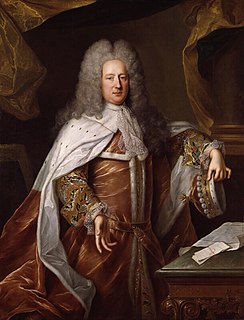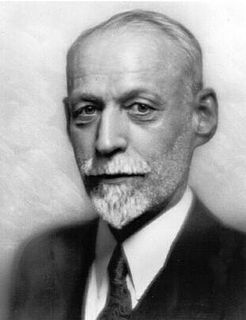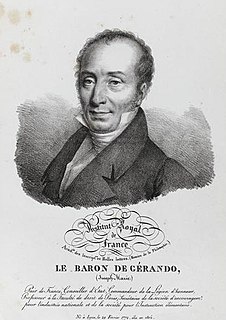A Quote by James Madison
The diversity in the faculties of men, from which the rights of property originate, is not less an insuperable obstacle to an uniformity of interests. The protection of these faculties is the first object of government.
Quote Topics
Related Quotes
The diversity in the faculties of men, from which the rights of property originate, is not less an insuperable obstacle to a uniformity of interests. The protection of these faculties is the first object of government. From the protection of different and unequal faculties of acquiring property, the possession of different degrees and kinds of property immediately results; and from the influence of these on the sentiments and views of the respective proprietors, ensues a division of the society into different interests and parties.
In civilized communities, property as well as personal rights is an essential object of the laws, which encourage industry by securing the enjoyment of its fruits; that industry from which property results, and that enjoyment which consists not merely in its immediate use, but in its posthumous destination to objects of choice, and of kindred affection. In a just and free government, therefore, the rights both of property and of persons ought to be effectually guarded.
In the latter sense, a man has a property in his opinions and the free communication of them. He has a property of peculiar value in his religious opinions, and in the profession and practice dictated by them. He has an equal property in the free use of his faculties and free choice of the objects on which to employ them. In a word, as a man is said to have a right to his property, he may be equally said to have a property in his rights.
To instruct the mass of our citizens in these, their rights, interests and duties, as men and citizens...this brings us to the point at which are to commence the higher branches of education . . . . To develop the reasoning faculties of our youth, enlarge their minds, cultivate their morals, and instill into them the precepts of virtue and order.
In short, it is the greatest absurdity to suppose it in the power of one, or any number of men, at the entering into society, to renounce their essential natural rights, or the means of preserving those rights; when the grand end of civil government, from the very nature of its institution, is for the support, protection, and defence of those very rights; the principal of which, as is before observed, are Life, Liberty, and Property.
I submit that the Government exists to provide for the needs of the people, and when it comes to choice between profits and property rights on the one hand and human welfare on the other, there should be no hesitation whatsoever in saying that we are going to place the human welfare consideration first and let property rights and financial interests fare as best they may.
As property, honestly obtained, is best secured by an equality of rights, so ill-gotten property depends for protection on a monopoly of rights. He who has robbed another of his property, will next endeavor to disarm him of his rights, to secure that property; for when the robber becomes the legislator he believes himself secure.
Philosophers have very justly remarked that the only solid instruction is that which the pupil brings from his own depths; that the true instruction is not that which transmits notions wholly formed, but that which renders him capable of forming for himself good opinions. That which they have said in regard to the intellectual faculties applies equally to the moral faculties. There is for the soul a spontaneous culture, on which depends all the real progress in perfection.

























